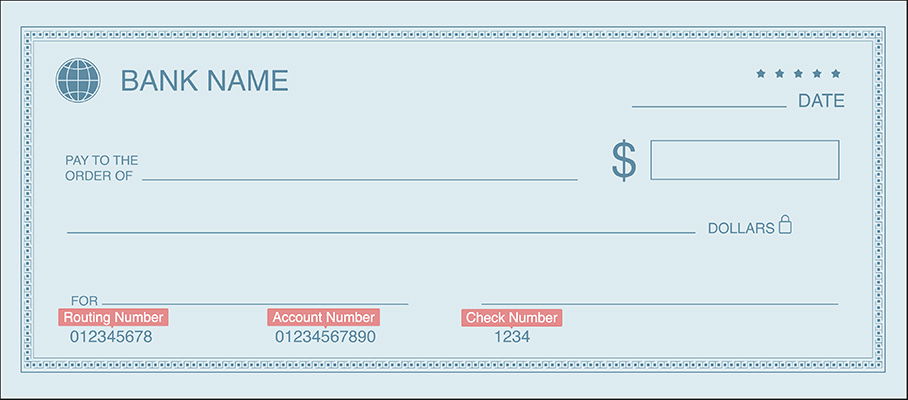A joint bank account can be a convenient way to share finances, whether you’re managing household expenses with a partner, collaborating with a business associate, or supporting a family member. However, there may come a time when keeping the account open no longer makes sense.

Closing a joint bank account is often necessary during major life changes, such as a breakup, divorce, or financial disagreement. While the process is straightforward, it’s important to approach it with a plan to avoid complications, especially when both account holders need to be involved.
This guide walks you through everything you need to know about closing a joint bank account, from preparing your finances to completing the closure, so you can move forward with confidence.
Reasons You May Want to Close a Joint Bank Account
Joint bank accounts can be useful, but there are times when they no longer serve their purpose. Below are common reasons for closing a joint account, along with actionable steps for each situation.
Breakup or Divorce
When a relationship ends, closing a joint bank account helps separate finances and reduce potential conflicts. Start by discussing how to divide the funds fairly, as most banks will allow either party to withdraw money. If you can’t agree, consider consulting a mediator or a divorce attorney to ensure legal requirements are met.
In some cases, it may be better to leave the account temporarily open but restrict activity by setting withdrawal limits or requiring both signatures for transactions until the funds are split.
Irresponsible Account Holder
If one account holder frequently mismanages funds, such as overspending or failing to pay shared bills, closing the account can protect your financial security. Before taking action, talk with your co-owner to address the behavior. If it’s not possible to resolve, open an individual account and begin moving your funds and automated transactions to it.
For situations involving large debts or financial abuse, consider consulting a financial advisor or legal professional to safeguard your money.
Banking Preferences or Privacy Concerns
Sometimes, closing a joint account has less to do with conflict and more with personal preferences. For example, one account holder may prefer a bank with better features, or both parties may decide to manage their finances independently.
Another common concern is privacy. Joint accounts allow both parties to view every transaction, which may not work for everyone. If this is the case, splitting into individual accounts can give each person more control over their spending without affecting the relationship.
Minimize Fees
Monthly maintenance fees or hidden costs can make keeping a joint account less appealing. Instead of closing the account entirely, check if your bank offers fee-free options. For example, converting the joint account to a no-fee checking or savings account could solve the issue without needing to move funds.
Reducing Liability
Shared accounts mean shared liability. If your co-owner has debts, lawsuits, or other financial obligations, creditors could access joint funds. Closing the account reduces the risk of losing your money to another person’s financial troubles.
If switching accounts doesn’t address the problem, research banks or credit unions that provide accounts with lower fees or better terms, and consider opening a new account that fits your needs.
4 Steps to Closing a Joint Bank Account
Closing a joint bank account may seem complicated, but breaking it into clear steps can simplify the process. Here’s how to handle it effectively.
1. Prepare Your Finances
The first step is getting your finances in order. Start by clearing out any remaining funds from the joint account. Decide with the co-owner how to divide the money fairly. Once you’ve agreed, transfer the funds to individual accounts or withdraw them in cash.
At the same time, review all automated transactions connected to the account. These could include subscriptions, utility payments, or loan installments. Make sure to update your payment details with your new account information to avoid service interruptions.
2. Update Direct Deposits
Many people have paychecks or other income sources, such as government benefits, directly deposited into their joint accounts. Before closing the account, contact your employer or the income provider and update your bank details. This ensures your money goes to the right place during the transition.
It’s always a good idea to confirm the first deposit has been successfully redirected before closing the joint account entirely.
3. Check Your Bank’s Policies
Banks often have specific policies for closing joint accounts. Some may require both account holders to visit a branch, while others allow one person to handle the process online or by phone.
Before taking action, contact customer service or check the bank’s website to clarify the steps involved. Be prepared to provide identification and account details to finalize the closure.
4. Communicate with Your Co-Owner
If possible, work with your co-owner to make the process smooth. Agree on how to handle shared payments and divide the remaining funds. If you expect disagreements, consider involving a neutral third party, like a financial advisor or mediator, to help resolve any issues.
Good communication helps ensure the closure is handled without unnecessary complications.
Important Details to Address Before Closing a Joint Account
Closing a joint bank account isn’t just about signing paperwork. Addressing potential pitfalls can help you avoid unnecessary complications later.
Manage Overdraft Fees and Pending Transactions
Ensure there are no overdraft fees or pending charges on the account before closing it. Check recent statements for recurring transactions or automatic debits. Cancel these payments and ensure any outstanding balances are paid in full.
To prevent unexpected charges:
- Use your bank’s mobile app or website to monitor recent activity.
- Set up transaction alerts to catch any pending charges before closure.
Track Deposits to Avoid Reopening the Account
If a deposit gets sent to the closed account—such as payroll, tax refunds, or reimbursements—the bank may reopen it, potentially incurring new fees. Update deposit information for all income sources before initiating closure.
To stay on top of deposits:
- Use direct deposit forms to notify employers or income providers.
- Set calendar reminders to verify that deposits have started going to your new account.
Protect Your Credit During the Transition
Joint accounts can impact your credit if overdraft fees or negative balances go unpaid. Banks may report these issues to credit bureaus, affecting both account holders.
To protect your credit:
- Pay off any outstanding fees before closing the account.
- Monitor your credit score regularly to catch changes related to the account closure.
Keep Records for Future Reference
Always retain proof that the account was closed, such as a confirmation email or a letter from the bank. This documentation is helpful if there are future disputes over fees, balances, or unauthorized transactions.
Bottom Line
Closing a joint bank account is an important step when shared finances are no longer practical. Whether you’re separating from a partner, streamlining your banking setup, or reducing financial risks, handling the process with care ensures a smooth transition.
Start by opening your own account, settling any balances, and updating deposits and payments to avoid complications. Clear communication with your co-owner and attention to bank requirements can help prevent unnecessary stress. By taking these steps, you can confidently move forward with your financial independence while avoiding lingering issues from the old account.
If you’re ready to make the change, follow the outlined steps to close your joint account securely and efficiently.
Frequently Asked Questions
What happens if one account holder refuses to close the account?
If one account holder refuses to close the account, your options depend on the bank’s policies. Many banks allow one co-owner to close the account without the other’s consent, provided there are no unresolved balances or pending transactions.
If the bank requires agreement from both parties, you may need to negotiate with the co-owner or seek legal help. Another option is to freeze the account to prevent further transactions until the issue is resolved.
Can a joint account be closed if one party is unreachable or deceased?
Yes, but the process depends on the situation. If one party is unreachable, the other account holder may still close the account if the bank permits it and there are no outstanding issues.
In the case of a deceased account holder, you’ll need to provide the bank with a death certificate. The funds in the account may then be subject to probate or transferred to the surviving account holder, depending on the bank’s policy and the account agreement.
How long does it take for a joint account to be officially closed?
Closing a joint account typically happens the same day, especially if both account holders agree and all requirements are met. However, some banks may take several days to finalize the closure if there are pending transactions, unresolved fees, or legal documents involved.
To avoid delays, ensure the account balance is zero, all transactions are cleared, and any required documentation is submitted.
Can you remove someone from a joint account instead of closing it?
Some banks allow one account holder to remove the other from the account, but this depends on the bank’s policies and the agreement between the account holders. In many cases, both parties must consent to such changes.
If removing the co-owner isn’t an option, the only alternative may be to close the account and open a new one in your name. Always check with your bank to confirm their specific rules regarding joint account modifications.




